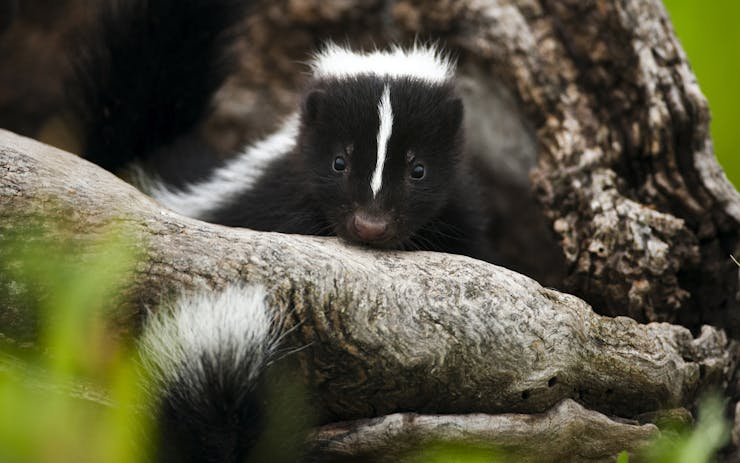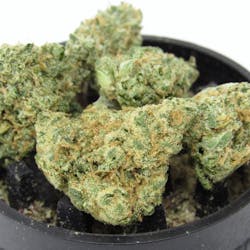Anyone who has travelled to even the most minimal extent knows that words can sometimes change depending on area. Over time, these words evolve along with changes to society and the actual people using the words. We’ve already covered the nuances in cannabis industry terminology on a broad level; now we’re going to look into a specific phrase in cannabis terminology: “skunk cannabis,” or as it’s more commonly referred to, “skunk weed.”
“Skunk” in the United States

In order to understand the meaning behind the word, it’s important to take a step back and look at the etymology of the word “skunk.” In the States, the meaning of the term is inextricably linked to everyone’s favorite, liquid-spraying mammal, the skunk. Despite the brave reputation restoration battle fought by the suave Pepé Le Pew, skunks are still mostly known for possessing an amazing defense mechanism, their eye-watering odor.
Unsurprisingly, this descriptor was chosen as the perfect fit for certain cannabis strains that emerged in the 1970’s and seems, in the U.S. at least, to have retained that meaning in the public’s consciousness. “Skunky” smells “stinky”; this is a term that has old-school marijuana references and is probably one of the most common smells associated with cannabis.
“Skunk” in the United Kingdom

The word “skunk” is also commonly used in the United Kingdom, but there the term has taken on a new life and is far more popularly used in a different context.
When media in the United Kingdom speak about skunk, they mean all high-THC cannabis varieties, regardless of their genetic heritage. In the U.K., skunk is widely used as a generic term for non-pollinated, seedless, and potent cannabis flowers grown for the purpose of smoking.
Sinsemilla became widespread in the U.K. in the early 1990s after a revolution in growing techniques, typically incorporating the use of high-pressure sodium lighting (HPS) and other high-intensity discharge (HID) lamps, often combined with the use of hydroponics (i.e. growing plants in nutrient-rich liquids rather than in soil).
The First “Skunk” in Cannabis Culture
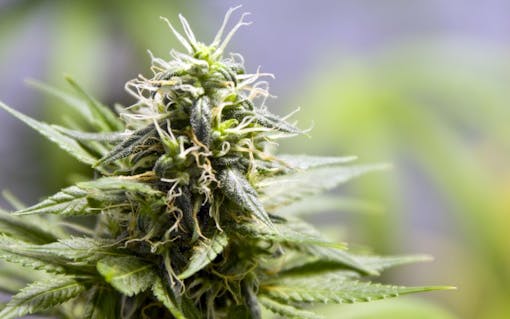
For some smokers, skunk has simply become another generic word for cannabis. Not only is the generalization inaccurate, it also undermines the true genetic identity of the plant, as true skunk is an independent strain with its origins dating back to the 1970’s.
In the 1970s, growers in the USA began to crossbreed short, mountain hashish strains, mostly from Afghanistan and Pakistan with the tall, potent sativa cannabis strains from Central and South America, and strains from tropical Asia. These cross breeds could be grown outdoors in marginal climates in the USA such as northern California, in greenhouses in the Netherlands, and indoors under HID lamps.
Shop highly rated dispensaries near you
Showing you dispensaries nearLater appropriately named Skunk #1, the first skunk was stabilized as a true breeding variety in the 70’s and is still one of the most consistent and predictable strains available today. Breeders produced a plant that is highly adaptable, very potent, and with a short flowering period.
The original skunk cannabis strains were known to have a very pungent, dead animal-like smell reminiscent of a skunk. Thus, the name has stuck because it is fitting.
Skunk #1 is a hybrid strain that has influenced cannabis on a global scale, parenting a horde of skunk crosses. The strain was developed during the early 1970’s in California by a group of growers and breeders known as Sacred Seeds, led by the mythological David Watson who is more widely known by his moniker Sam the Skunkman.
Following his release from prison in 1982, the Skunkman brought several kilos of these seeds with him when he moved to the Netherlands. Once there, he made his way to Amsterdam, where he founded Cultivators Choice seed company. Dutch growers have since refined and cross-bred the plants to produce a number of strains including Super Skunk, Early Girl, Northern Lights, and Jack Herer.
Reefer Madness in the U.K.
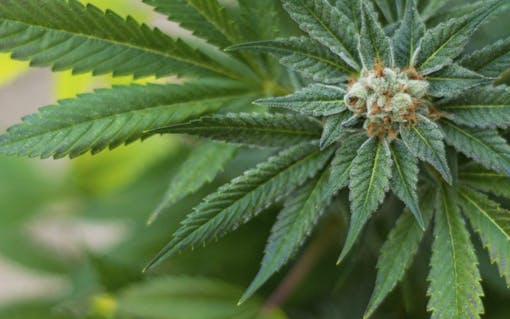
Cannabis is the most widely used illegal drug in the U.K., although its consumption in recent years has fallen. The proportion of 11 to 15 year olds in England who had used cannabis dropped from 13.3% in 2003 to 7% in 2013, while the proportion of 16 to 59 year olds using cannabis in the same period fell from 10.6% to 6.6%.
Still, the variety of cannabis colloquially known as “skunk” has attracted much publicity in recent times. Much of this publicity is inaccurate, describing the strain as a “super-weed” and even implying it is a new drug entirely. Skunk is simply a variety of cannabis developed for indoor cultivation, producing hybrid plants, with early flower development, and a pungent aroma.
According to DrugWise, traditional cannabis contains 2 to 4 percent THC with more potent varieties averaging 10 to 14 percent. Claims that skunk is 20 to 30 times as powerful as “traditional” cannabis are simply spurious. A European review of cannabis potency in June 2004 concluded that the overall potency of cannabis products on the market had not increased significantly because imported cannabis dominated the market in most countries. However, as home-grown cannabis has become more widely available, especially in the U.K., consumption of stronger varieties has increased.
Generally, the UK media cover cannabis accurately, but some of the headline writers occasionally overstep the mark. The Sun‘s article, “Scientists warn smoking ‘skunk’ cannabis wrecks brains,” and the Daily Mail‘s companion pieces, “Proof strong cannabis does harm your brain” and “cannabis TRIPLES psychosis risk,” were not based on sufficient evidence to justify the extravagant headlines.
The first study found that skunk users underwent structural changes in the corpus callosum. This type of study cannot prove cause and effect, only suggest a possible link, so “proof” is by far too strong a term to use. Also, the study didn’t look at how the small changes in the brain associated with skunk affected thoughts or other brain functioning, so it was not fair to say skunk “wrecks” the brain.
What this study doesn’t tell us is whether these structural changes do any harm or cause any negative mental health effects, which is why The Sun‘s headline is too strong. The study simply didn’t look at this, and the effects of cannabis use are not firmly established.
This study wasn’t designed to look at the effect of skunk on mental health illnesses, only small changes in brain structure, so it tells us little about the link between cannabis use and the development of a mental health illness. Of course, cause and effect cannot be illustrated with a study like this. By definition, the only type of connection here is a correlation, and correlation does not necessarily equal causation.
Regarding the study which served as a basis for headlines such as “cannabis triples psychosis risk,” there are shortcomings in the research that are not addressed in the sensationalized headings. While Sir Robin Murray, professor of psychiatric research at King’s College London, doesn’t wholly discount the findings, he warns that the study doesn’t provide a causal link:
“The argument initially was that the people who are going to smoke cannabis are a bit odd anyway … In south London, two-thirds of people have used cannabis and it seems unlikely that two-thirds of people are abnormal.”
Crucially, skunk and hash use was self-reported in this study, so we have to assume that participants knew what they were smoking, and can only guess at the true levels of THC and CBD in the cannabis being used. Ideally, samples would have been taken and the precise levels of these cannabinoids assessed, but this isn’t practical in studies of this size and design.
This meant that researchers had to rely on patients being good judges of how often they smoked, how much and, most importantly, what they smoked. Considering there are all sort of street smokes sold all over South London, like synthetic powerful highs known as “Spice,” the findings become even more controversial. A more refined, close to reality reporting would have been obtained if blood tests and analysis had been made.
The problem with the term “skunk” is that it’s almost totally ambiguous. Sure, it pertains to strong weed, but there is a real lack of concrete information on the product that people are consuming, hence the necessity to generalize it as skunk.
“Skunk Cannabis” Summarized
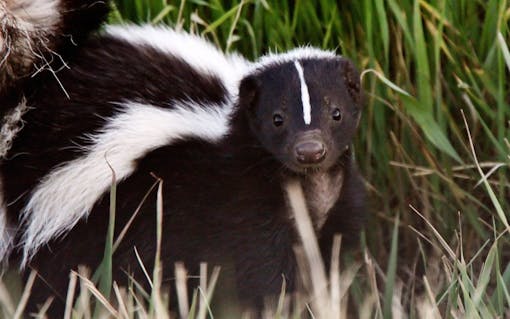
We’ve learned that skunk is not only an adjective employed to describe the distinctive smell of cannabis in the U.S., it’s also a general term that is used as a blanket description for all potent, high-THC strains in the U.K. This strain also has genuine pedigree; it’s a 70’s superstar that has been transformed, kept up with the times, and exerted influence down through the decades to become a staple in the weed world.
What is the reason behind the division of meaning, though? Why does skunk imply stink in the U.S. but potency in the UK? My theory is that the lack of information regarding cannabis in the U.K. is so severe, especially in terms of identifying genetics and true lineages, that the term “skunk” is used as a convenient catch-all for unidentified weed.
Just as the term originally developed to describe a potent, aroma-rich strain in the U.S. and the Netherlands, the term “skunk” never lost its association with strong weed in the U.K. Essentially, a misunderstanding occurred. While in the U.S. a very specific cannabis culture emerged allowing the identification of myriad strains, that development never happened in the U.K. Skunk became the street nomenclature of last resort and emerged in popular culture as the go-to label for any high-THC strain.
In the U.K., people haven’t stopped smoking cannabis because it’s illegal, but they’re subjected to the dangers of an inferior product with no quality control, no freedom of consumer choice, and no thorough testing or data on strain genetics. Unfortunately, anti-cannabis crusaders like to possess a core argument to maintain the illegality of cannabis, and skunk is a convenient target.
The term “skunk” embodies the problem in microcosm: a general term masking a dearth of knowledge as a consequence of prohibition. As always, the solution should be more accurate information, not less, leading to better informed and safer consumers.
